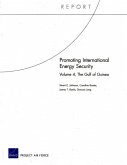Green Financial Derivatives: Option-Based Solutions Promoting Behaviour-Driven Household Energy Efficiency provides a guide on the role of market-based interventions on mitigating household energy demand. This book provides clarity on the fundamental principles of the financial markets, energy markets, and regulatory and policy landscapes, identifying challenges and opportunities. It outlines the critical role that behavior-centered interventions play in the demand-supply challenges of renewable energy integration and how these intersect with technological solutions. As well as breaking down general principles of option-based green financial derivatives, it provides a close analysis and evaluation of the Household Energy-Saving Option (HESO) and the market-equilibrium pricing method. With a wealth of case studies, tools, and best practices, ‘Green Financial Derivatives’ will support academics, students, and policymakers in designing, implementing, and evaluating market-based options for advancing demand stability and renewable energy sources.
Hinweis: Dieser Artikel kann nur an eine deutsche Lieferadresse ausgeliefert werden.
Hinweis: Dieser Artikel kann nur an eine deutsche Lieferadresse ausgeliefert werden.








